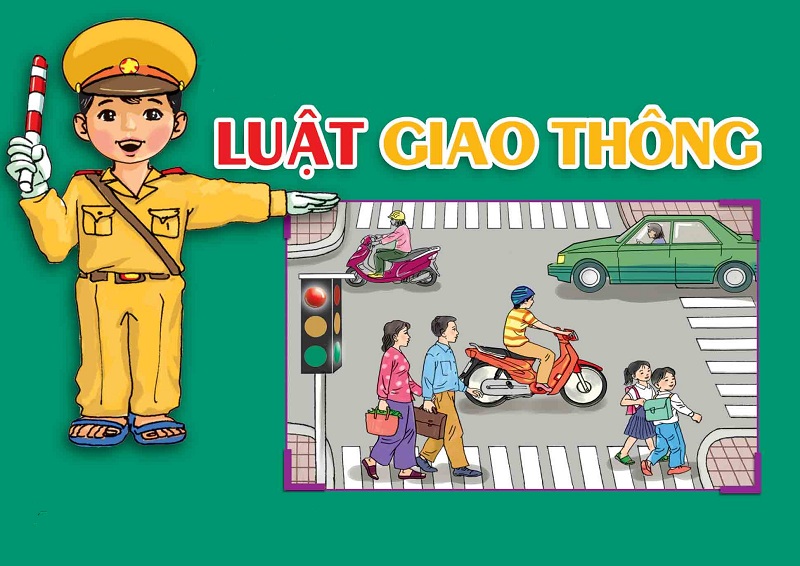Vận chuyển hàng hóa là hoạt động kinh doanh vận tải thuộc sự quản lý trực tiếp của bộ giao thông vận tải. Những công ty hoặc nhà xe luôn phải tuân thủ theo Quy định về vận chuyển hàng hóa mà nhà nước đã ban hành.
Quy định về vận chuyển hàng hóa là những điều lệ đặt ra đối với chủ hàng, chủ xe khi chuyển hàng hóa. Bản điều lệ này đặt ra những quy tắc vận tải bằng các loại hình vận chuyển khác nhau nhằm mục đích xây dựng và tăng cường công tác quản lý vận chuyển hàng hoá bằng ô-tô, đưa việc vận chuyển này đi dần vào kế hoạch để bảo đảm hoàn thành và hoàn thành vượt mức các chỉ tiêu vận chuyển của Nhà nước và yêu cầu vận chuyển hàng hoá của nhân dân bằng ô-tô.

Quy định về vận chuyển hàng hóa còn có tác động tích cực liên ngành đối với an ninh, môi trường, quốc phòng và an toàn giao thông. Đối với khách hàng, các quy định này giúp đảm bảo bình ổn giá và giúp khách hàng đảm bảo quyền lợi khi xảy ra sự cố.
Quy định về giấy vận chuyển hàng hóa
Giấy vận tải được quy định tại khoản 2 Điều 52 Thông tư 63/2014/TT-BGTVT như sau:
+ Giấy vận tải bao gồm các thông tin sau: tên đơn vị vận tải; tên đơn vị hoặc người thuê vận chuyển; hành trình, số hợp đồng (nếu có), ngày tháng năm ký hợp đồng; loại hàng và khối lượng hàng vận chuyển trên xe; thời gian nhận hàng, giao hàng và các nội dung khác có liên quan đến quá trình vận tải.
+ Giấy vận tải do đơn vị vận tải đóng dấu và cấp cho lái xe mang theo trong quá trình vận chuyển hàng hóa trên đường; trường hợp là hộ kinh doanh thì chủ hộ phải ký, ghi rõ họ tên vào Giấy vận tải.

+ Sau khi xếp hàng lên phương tiện và trước khi thực hiện vận chuyển thì chủ hàng, hoặc đại diện đơn vị hoặc cá nhân thực hiện xếp hàng lên xe phải ký xác nhận việc xếp hàng đúng quy định vào Giấy vận tải theo mẫu quy định tại Phụ lục 28 của Thông tư này.
+ Khi vận chuyển hàng hóa, lái xe phải mang theo Giấy vận tải và các giấy tờ của lái xe và phương tiện theo quy định của pháp luật.
+ Lái xe không được chở hàng hóa vượt quá khối lượng cho phép tham gia giao thông theo quy định của pháp luật.”
Quy định về thứ tự ưu tiên vận chuyển
+ Những hàng hoá lưu thông không trái với luật lệ hiện hành của Nhà nước đều được nhận chở và quyền ưu tiên vận chuyển sẽ dành cho hàng đã có kế hoạch vận chuyển dự trù trước và đã ký hợp đồng vận tải.
+ Hàng gửi trước hoặc xin xe trước thì được chở trước.
+ Hàng gửi sau hoặc xin xe sau thì được chở sau.
+ Nếu nhiều chủ hàng gửi hàng hoặc xin xe cùng một lúc để vận chuyển cùng một thời gian, mà khả năng phương tiện của bên vận tải không đủ, thì ưu tiên vận chuyển phải được thi hành theo thứ tự quy định như sau:
1 Hàng tươi, hàng dễ biến chất;
2 Hàng nguy hiểm
3 Hàng thường
Quy định về những hàng hoá không nhận chở
Bên vận tải có quyền không nhận chở những loại hàng hoá sau đây:
a) Hàng cấm lưu thông, hàng hoá phải có giấy phép lưu thông mà bên chủ hàng không có hoặc giấy tờ không hợp lệ;
b) Hàng hoá đã có lệnh của Nhà nước cấm chuyên chở ngược chiều;
c) Hàng hoá cần có thiết bị đặc biệt để bảo đảm an toàn và bảo đảm phẩm chất mà bên vận tải không có loại thiết bị ấy, trừ trường hợp bên chủ hàng có khả năng cung cấp thiết bị;
d) Hàng hoá mà bao bì không bảo đảm an toàn trong khi vận chuyển.
Quy định về việc vận chuyển hàng hoá quá khổ và quá nặng
+ Đối với những hàng hoá quá khổ hoặc quá nặng vượt kích thước hoặc quá mức trọng tải của các loại xe mà bên vận tải hiện có, hoặc vượt quá mức chịu đựng của đường, cầu, phà trong vùng cần vận chuyển, bên chủ hàng cần bàn bạc trước từ 10 ngày đến một tháng với cơ quan giao thông vận tải hoặc bên vận tải nơi hàng đi.
+ Nếu bên vận tải nơi hàng đi không tìm được biện pháp giải quyết thì báo cáo với cơ quan giao thông vận tải cấp trên. Nếu là xí nghiệp vận tải thì báo cáo lên Ty hay Sở Giao thông vận tải.
Quy định về trường hợp vận chuyển đột xuất
+ Bên vận tải chỉ nhận vận chuyển những trường hợp đột xuất có tính chất khẩn cấp khi có lệnh của Thủ tướng Chính phủ, của Bộ trưởng Bộ Giao thông vận tải hay của các Ủy ban hành chính các khu, tỉnh, thành phố trực thuộc Trung ương, như cứu đói, cứu mùa màng, chống bão lụt, chống dịch, chống hạn hoặc phục vụ an ninh và quốc phòng.
+ Trong những trường hợp vận chuyển đột xuất khác, bên vận tải chỉ nhận chở nếu có khả năng hoặc khi có lệnh của Thủ tướng Chính phủ, của Bộ trưởng Bộ Giao thông vận tải hoặc của Ủy ban hành chính các khu, tỉnh, thành phố trực thuộc Trung ương, nhưng bên chủ hàng phải trả thêm cho bên vận tải một khoản tiền bằng 2% giá cước vận chuyển.




